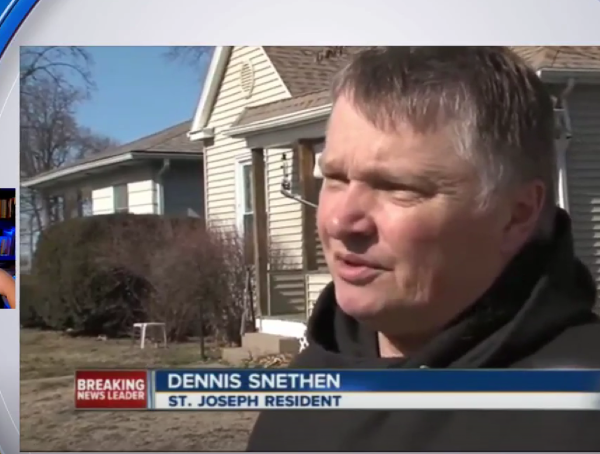Steve Hartman has what looks like a dream job. He travels the country, telling uplifting stories that run once a week on the CBS Evening News. “On the Road” is a legendary franchise once the province of the great Charles Kuralt. Now, the time is Hartman’s and he uses it well.
One of Hartman’s best storytelling strategies is to preserve the surprise in a story. “I call it a turn,” he says, or the ‘aw’ moment. You’re building a wave, getting to that moment, visual and verbal.” In this story, for example, Hartman withholds key information until he’s ready to spring the surprise.
Hartman can turn a phrase with the best of them but he detests flowery, gimmicky writing that tries too hard to capture emotion. “Writing can get in the way of a good story,” Harmans told the 2018 Excellence in Journalism conference. “I see poetic writing so artsy I don’t know what the story’s about.”
Some writers stress about getting the first line in a story just right. Hartman doesn’t. “I want to get across basic information,” he says. “A long time ago every story started ‘Once upon a time’ and people were still interested. I like to start every story, ‘Once upon a time.’”
Hartman is compulsive about logging everything, not just interviews. Only when he logs can he spot the moments that will make a story memorable, like the snap zoom in this story.
“Don’t write from memory,” Hartman advises. “If you don’t know what the camera’s done, you can’t know what you have.”
Hartman says his favorite stories are often those that offer very little to work with because he can avoid the trap of having so much good stuff that he wants to cram it all in. “One of biggest challenges we face is pulling out stuff. We fall in love with things that don’t need to be there. There’s always something that can go.”
Since he edits his own stories, Hartman puts everything he might use into an Avid timeline. “I start to build a skeleton with sound before I write a word. If I have 12 seconds [of video] I have to write a line to fit.”
Not that his first draft is anything like his finished piece. “I change it over and over,” Hartman says. In his view, there are no great writers, only great re-writers. “It’s hard work. People think it comes naturally. It does not.”
This post originally appeared on advancingthestory.com.
 Deborah Potter is an experienced journalism trainer and reporter who spent 16 years as a network correspondent at CBS News and CNN. She is co-author of “Advancing the Story: Quality Journalism in a Digital World,” now in its fourth edition. She writes regularly about journalism on the Advancing the Story website. For almost 20 years, Deborah ran NewsLab, the journalism site she founded in 1998, which is now part of the University of Mississippi. Deborah leads workshops for journalists in newsrooms across the United States and around the world on writing, social media, digital journalism and ethics.
Deborah Potter is an experienced journalism trainer and reporter who spent 16 years as a network correspondent at CBS News and CNN. She is co-author of “Advancing the Story: Quality Journalism in a Digital World,” now in its fourth edition. She writes regularly about journalism on the Advancing the Story website. For almost 20 years, Deborah ran NewsLab, the journalism site she founded in 1998, which is now part of the University of Mississippi. Deborah leads workshops for journalists in newsrooms across the United States and around the world on writing, social media, digital journalism and ethics.








